RSS





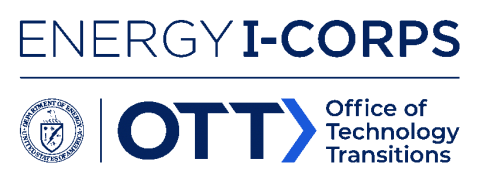
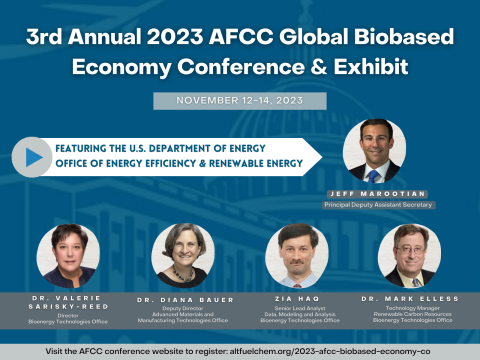
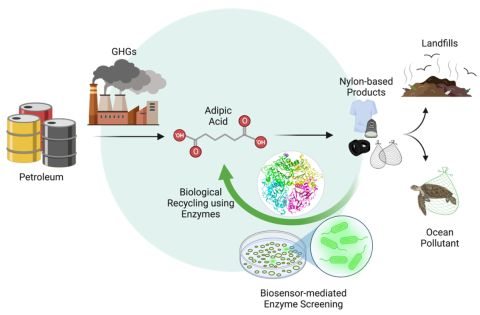
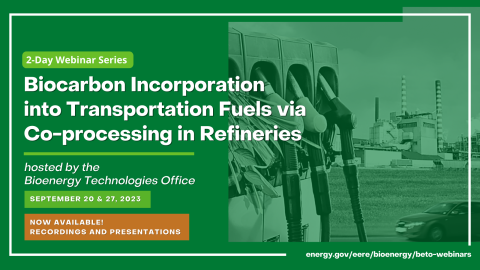
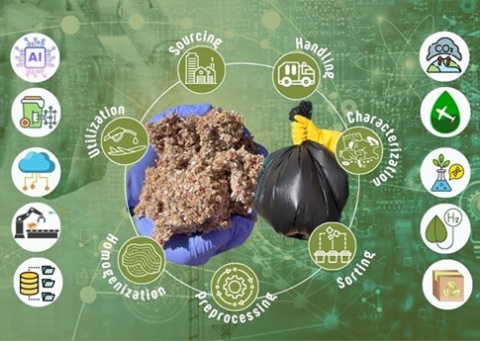

The U.S. Department of Energy (DOE) Bioenergy Technologies Office (BETO) is hosting several events in November that support research, development, and demonstration to enable the renewable use of domestic biomass and waste resources to produce biofuels

National STEM Day 2023 is a day for educators and students to explore interests in STEM and STEM-adjacent careers. It’s the perfect opportunity to:

Join the U.S. Department of Energy (DOE) on November 28, 2023, at 4:00 pm ET, for an informational webinar to learn about the recently launched Clean Fuels & Products Shot™ , including an update on the initiative’s goals, recent activities, and next steps

The U.S. transportation sector, including cars, trucks, airplanes, ships, and trains, accounts for 34% of the nation’s emissions.

Showcase the power of algae by contributing to a renewable energy future through innovative research projects! The deadline to register and submit team abstracts for the U.S. Department of Energy (DOE) AlgaePrize 2023-2025 competition is Wednesday, November 1

Recycling textiles can be challenging due to their blended materials, such as spandex or dyes, which are hard to isolate and purify. However, thanks to the U.S. Department of Energy (DOE) Office of Technology Transitions (OTT) Energy I-Corps initiative, t

The 3rd Annual 2023 Global Biobased Economy Conference, hosted by the Alternative Fuels & Chemicals Coalition (AFCC), and co-sponsored by the U.S. Department of Energy (DOE) Bioenergy Technologies Office (BETO), will take place November 12-14, 2023, in Wa

Scientists at Los Alamos National Laboratory (LANL) have developed biosensing technology that can help address the problem of plastic waste, specifically nylon-based waste such as textiles, carpets, tires, and fishing nets. These and other products are...

The U.S. Department of Energy’s (DOE) Bioenergy Technologies Office (BETO) hosted a two-day webinar series, Biocarbon Incorporation into Transportation Fuels via Co-processing in Refineries, to highlight the key takeaways from the Bio-oil Co-processing wi

North Carolina State University (NC State) is excited to announce a groundbreaking workshop designed to shape the future of waste management, drive renewability, and explore opportunities for a net-zero bioeconomy...

